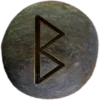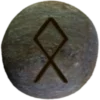Last Updated on February 19, 2025
Table of Contents


Dísablót (DEE-sah-bloht) was a sacred offering to the dísir (DEE-seer), powerful female spirits tied to fate, family, and protection. These beings included ancestral mothers, valkyries, and goddesses who watched over their kin. People held Dísablót during winter, often near the time of Vetrnætr (VET-ur-nyte-er), marking the change of seasons.
Old Norse texts, such as Hervarar saga ok Heiðreks and Víga-Glúms saga, mention the dísir and their influence. The Ynglinga Saga describes Dísablót at Uppsala, where people made sacrifices for prosperity and protection. The Poetic Edda references dísir as beings who shape fate. ![]()
Dísablót was not a public festival like other seasonal rites. Families or clans performed it in private, seeking blessings from their dísir. Offerings included food, mead, and sometimes animal sacrifice. People sought guidance, protection, and strength for the coming year. The ritual strengthened ties between the living and the honored dead.
Women played a vital role in Dísablót. They often led the rites, as the dísir held strong connections to female ancestors. Seeresses, called völur (VOH-loo-r), sometimes aided in ceremonies, interpreting omens and messages from the spirits. These rites reinforced family bonds and ensured the favor of the dísir.
Over time, Dísablót blended with later customs. The Swedish Disting market, held in Uppsala, may have origins in this rite. It included trade, legal matters, and honoring the dísir. Though Christian influences reshaped many traditions, memories of Dísablót survived.
Modern practice often involves feasting, toasting, and storytelling to honor one’s foremothers. The spirits of the past remain tied to their descendants, offering strength and wisdom. Through Dísablót, people acknowledge their place in an unbroken line of kinship, calling upon the dísir to guide them.
Runes Associated with Dísablót
Perthro (ᛈ): The Well of Fate
Perthro (PAIR-throh) represents mystery, destiny, and the unseen forces that shape life. This Elder Futhark rune connects deeply to the dísir, who influence fate. Like a hidden well, Perthro holds secrets only revealed to those who seek wisdom. People used it for divination, seeking guidance from their ancestors. Perthro reminds us that the past and future intertwine, and honoring the dísir strengthens destiny’s thread. ![]()
Berkanan (ᛒ): The Mother’s Embrace
Berkanan (BAIR-kah-noh) symbolizes birth, renewal, and the protective power of female ancestors. It reflects the nurturing strength of the dísir, who safeguard their kin. Families invoked Berkanan for blessings of fertility, health, and spiritual growth. This rune reminds us that life continues through generations, nourished by the wisdom of those who came before.
Its Importance to Asatru
Dísablót holds deep meaning for Asatruar, strengthening the bond between the living and their foremothers. It honors the protective spirits who shape fate and offer guidance. Asatruar recognize that ancestral wisdom remains a vital force in daily life.
Family stands at the heart of this rite. The dísir watch over their descendants, ensuring prosperity and safety. By giving offerings, Asatruar show respect and gratitude. They acknowledge their place in a long line of kin, woven together by fate.
Dísablót also reinforces personal strength. The dísir embody resilience, courage, and wisdom. Their blessings bring clarity and fortitude in difficult times. Through this sacred act, Asatruar honor those who came before while preparing for the future.


